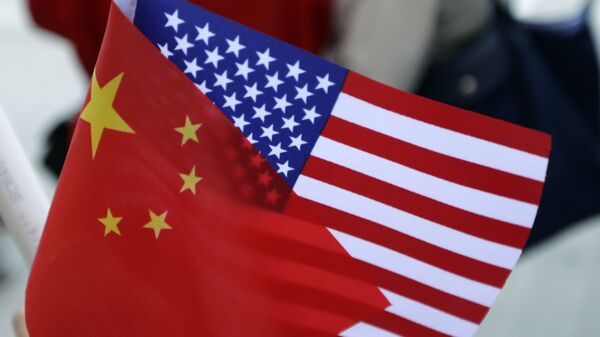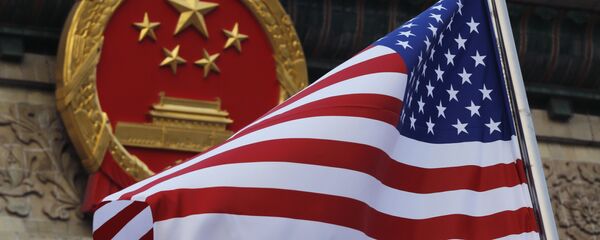Chinese investments in Latin America and the Caribbean (LAC) countries have been growing steadily since 2000, peaking in 2016 before a slight drop in the last two years, according to latest report monitoring China’s outflows of foreign direct investment (OFDI) in the LAC released by the Institute for China-Mexico Studies at Universidad Nacional Autonoma de Mexico (UNAM) this week.
Although Chinese investments in larger countries, including Argentina and Brazil, fell in 2018, Beijing began to focus more on building ties with other LAC nations, such as Peru and Chile. The report from the UNAM showed that Peru and Chile accounted for 63.03 percent and 16.31 percent of Chinese investments in the LAC in 2018, respectively.
READ MORE: Xi Calls for Early China-US Trade Agreement Negotiations Conclusion — Reports
A total of 15 countries from the LAC have joined Chinese President Xi Jinping’s ambitious Belt and Road Initiative (BRI), which promotes infrastructure development, connectivity and trade growth. After endorsing China’s BRI in November 2018, Chile’s upgraded free trade agreement with Beijing went into effect in March.
US Response
China took the opportunity to fill the void left in the LAC by the Trump administration’s "America First" policy, local business analysts pointed out.
"With Trump focusing on ‘Make America Great Again,’ they (the US investors) went back and left space in Latin America. The reaction from the Chinese in the last one year and a half is that they became much more aggressive and realized that there is space for the Chinese government and Chinese companies to play in Latin America," Ignacio Tornero, a China specialist at Carey, a business consulting firm based in Santiago, Chile, told Sputnik.
In March 2018, Chilean authorities approved the state-owned China Southern Power Grid’s acquisition of 27 percent stake in Chile’s largest electricity transmission system Transelec. Following a prolonged anti-trust review, China’s Tianqi Lithium Corporation received regulatory approval and was able to complete its purchase of 23.77 percent stake in Chilean mining group Sociedad Quimica y Minera de Chile (SQM) in December 2018.
Nevertheless, due to the growing US-China geopolitical rivalry globally, the Chilean expert expects Washington to respond strongly to China’s expanding influence in the LAC region, which is often considered as the backyard as the United States.
"Although Trump says his priority is to ‘Make America Great Again,’ what he is doing is not really for the United States to retreat from the rest of the world, as you can see from what’s happening in the South China Sea and with issues related to Taiwan. He’s not really doing what he’s saying. I think he realizes that China is a huge threat from a geopolitical and economic perspective. When the United States is facing this kind of threat, it’ll have to react. If they don't react soon, the Chinese will continue to take advantage of that. I think the United States will try to leverage its geographical proximity and its influence in the LAC regions to block China’s expansion," he said.
Other LAC-based political analysts expressed similar views on the prospects of US-China clash in the region.
READ MORE: Trump: US, China, Russia Should Invest in Peace Instead of Spending on Weapons
"China today presents a broad initiative (the BRI) and many specific instruments (in trade, OFDI, financing, infrastructure projects, etc.) For cooperation with the LAC, contrary to a minimalist approach by the Trump administration, in very pragmatic terms several LAC countries — with governments from the left to the political right — have decided to deepen and extend their relationship with china. In most of the cases, nevertheless, the United States is still and by far the most important partner of the respective LAC countries. This ‘new triangular relationship’ has become increasingly competitive for the United States and China and led to some tensions such as in Central America and the Caribbean, where in 2018 several countries that decided to recognize China diplomatically had problems with the Trump administration," Enrique Dussel Peters, the director of Institute for China-Mexico Studies at Universidad Nacional Autonoma de Mexico, told Sputnik.
Pragmatic Approach
However, Professor Peters from Mexico argued that LAC politicians, who were critical of China during the election campaigns, are likely to take a more pragmatic approach when dealing with Beijing after they take office.
"Several newly elected governments in Argentina, Chile, El Salvador and Brazil, among others, have been initially critical of China and highlighted differences with prior governments in their respective countries. However, and so far, all these new governments found out that China is very important — in most of the cases, the most important — in terms of demand of their respective exports. They had to lower their expectations and continued with a rather normal relationship with China," he said.
Tornero, the Chile-based business consultant, explained that most people in LAC countries are unlikely to pick a side between the United States and China.
"For most people here, I don’t think they actually care whether the United States or China has a bigger influence in Chile. For example, when people decided to buy a cell phone from Huawei, they don’t care if it’s made in China or the United States. They just want to have a better quality of life, right? If they see they can buy a car at 70 percent of the price of a competitor, they would choose the Chinese brand. The same has happened in so many different industries," he said.
The expert gave an example that local residents in the Chilean capital Santiago had been enjoying the new Chinese made electric buses, which are more comfortable and offer WiFi connections.
Chilean transportation authorities have introduced a fleet of 200 electric buses from Chinese manufacturers BYD and Yutong, with plans to convert 80 percent of the nation’s public transportation buses into electric ones by 2022.
The views and opinions expressed by the contributors do not necessarily reflect those of Sputnik.




